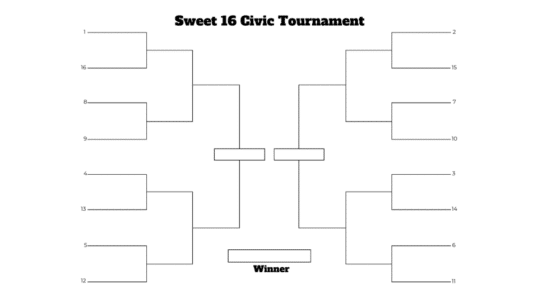One of the primary tasks of an IF facilitator is to ensure that his panels’ discussions keep to the task of exploring and developing possibilities, and do not degenerate into debates. But isn’t debating the validity and utility of ideas a way of exploring their differences? Doesn’t it help us to recognize the weaknesses of a possibility–and isn’t that useful for developing it further? And what, in any event, is the difference between an explorative and developmental discussion and a debate?
In the best of all possible worlds, a debate might actually be an ideal way to explore and develop ideas. There, debaters would always be completely open to other points of view. No one would be interested in defending his point of view–let alone beyond the point of no return–and everyone would try his best not only to understand other points of view, but to strengthen them as well. This, however, seldom if ever happens in the real world. Here, the element of competition kicks in, and it exerts an unfortunate influence. Debates in the real world are more like sporting contests between opposing players and teams. Debates, as we know them, are all about winning points, defending one’s own position come what may, and attacking opposing positions regardless of whether or not anyone understands them. Indeed, the very term ‘debate’ can be traced to an old French word that means ‘to fight’. So if a debater in the real world says that he wants to explore and develop his opponent’s idea, you can rest assured that it is the first step in a protracted argument designed to knock it out.
The purpose of a debate is to have ideas fight it out to determine which is the strongest. But it is easy to defeat an idea if the fight occurs before it has grown strong enough to defend itself. And the purpose of an IF discussion is see what ideas for addressing an area of concern are out there–and to strengthen them so that they are stronger than they were when you originally found them. The purpose of a debate is to put an end to a discussion. But the purpose of an IF discussion is to develop ideas so they will foster its thoughtful continuation. Our purpose is not to determine which policy possibilities are the most fit to survive. And it is not to resolve an issue once and for all. It is to explore a wide-range of policy possibilities and to develop them as best we can so that the ones that eventually survive public scrutiny will be actually worth pursuing.
This is the reason why IF facilitators try to prevent discussions from becoming debates. The task is a difficult one–partly because it is often difficult to know where discussion leaves off and debate begins, and partly because people who are interested in public policy often take pleasure in a good fight. So I typically let my panelists explore their differences when they disagree. But when I see them set their jaws and begin to repeat themselves, I gently remind them that our task is not to debate the issue, let alone to settle it once and for all, but to see whether it will be useful for public discussion. And this is typically enough to set them back on the right track.



